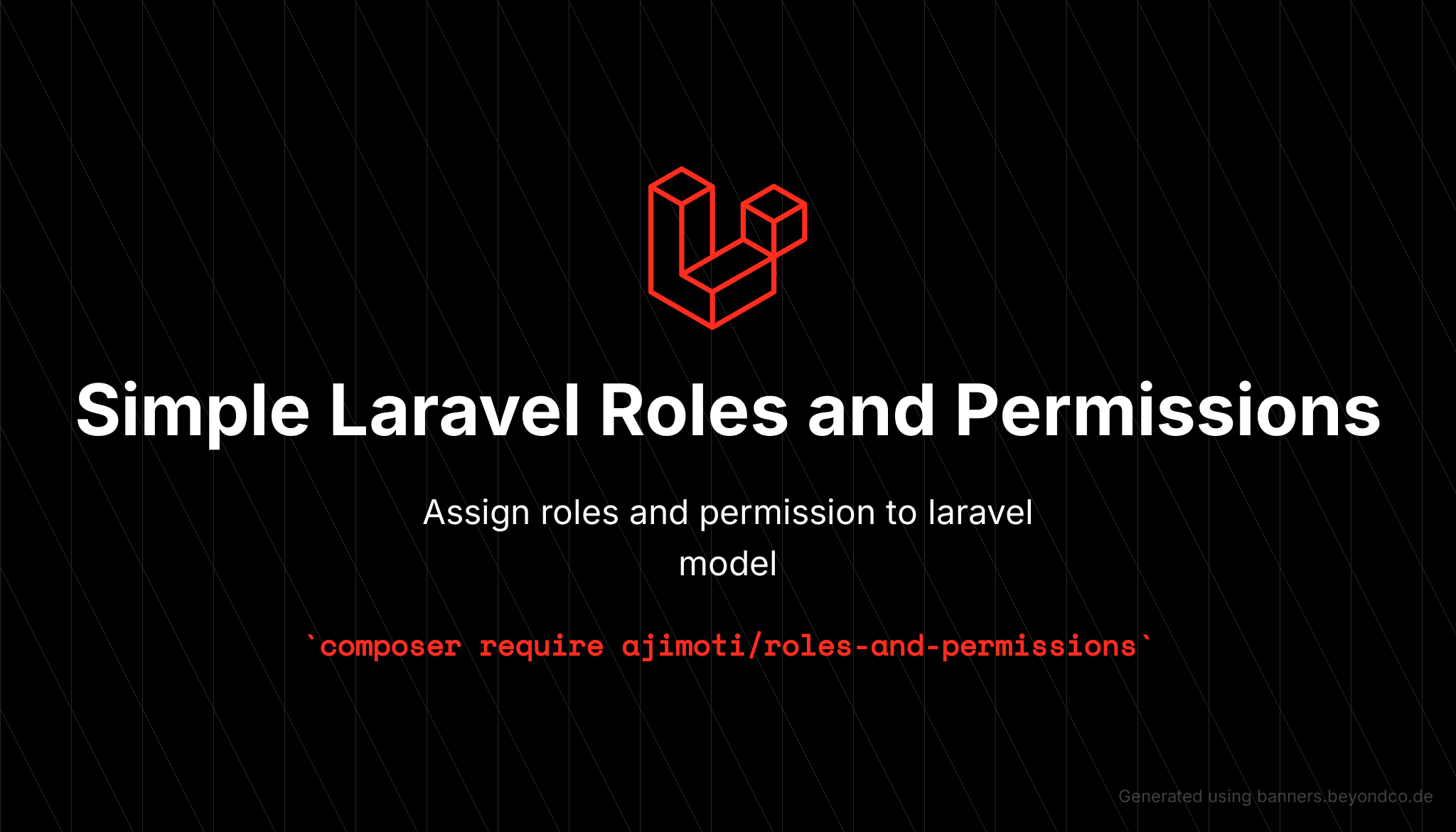Simple Laravel roles and permissions
Introduction
This package allows you to assign roles and permissions to any laravel model, or on a pivot table (many to many relationship).
Built and written by Ajimoti Ibukun
Documentation
You can read the proper documentation here
Quick Samples
On a Model
The example below explains how to use the package on a model after installation.
use App\Enums\Role;
use App\Enums\Permission;
// Assign a 'Super Admin' role to this user
$user->assign(Role::SuperAdmin);
// Check if the user has the role
$user->hasRole(Role::SuperAdmin);
// Or
$user->isSuperAdmin(); // returns true
// Check if the user can perform a operation
$user->can(Permission::DeleteTransactions);
// Or
$user->canDeleteTransactions();
// Check if the user has multiple permissions
$user->holds(Permission::DeleteTransactions, Permission::BlockUsers);
Pivot table (many to many relationship)
This demonstrates how to use the package on a many to many relationship. In this example, we assume we have a merchant relationship in our User model. And this relationship returns an instance of Laravel's BelongsToMany class.
Import the App\Enums\Role and App\Enums\Permission class.
use App\Enums\Role;
use App\Enums\Permission;
// Sample merchant
$merchant = Merchant::where('name', 'wallmart')->first();
// Assign a 'Super Admin' role to this user on the selected merchant (wallmart)
$user->of($merchant)->assign(Role::SuperAdmin);
// Check if the user has a super admin role on the selected merchant (wallmart)
$user->of($merchant)->hasRole(Role::SuperAdmin);
// Check if the user can 'delete transactions' on the selected merchant (wallmart)
$user->of($merchant)->can(Permission::DeleteTransactions);
// Check if the user has multiple permissions on the selected merchant (wallmart)
$user->of($merchant)->holds(Permission::DeleteTransactions, Permission::BlockUsers);
We used the
usermodel to make the example explanatory, similar to the examples above the package will work on any model class.
Requirements
- PHP 8.0 or higher
- Laravel 8.0 or higher
- Upon installation, the package publishes a
config/roles-and-permissions.phpfile, ensure you do not have a file with the same name in your config directory.
Pros
- The package can be used on any model, i.e any model can be assigned roles, and permissions.
- Roles can be given multiple permissions.
- Models have permissions via roles.
- Models can be assigned multiple roles.
- A
many to manyrelationship can be assigned roles. (i.e the package can be used on a pivot table). - Supports role hierarchy. (A higher level role can be configured to have the permissions of lower level roles).
Crons
- Permissions cannot be assigned directly on a
many to manyrelationship.
Installation
You can install the package via composer:
composer require ajimoti/roles-and-permissions
If you have existing pivot tables that you want to apply the package on, you can add the table names to the pivot.tables array in the config/roles-and-permissions.php config file. The command below will add a role column to every pivot table provided in the array.
Run the command below, then you are set to use the package.
php artisan roles:install
Documentation
Visit https://roles.ajimoti.com/docs/intro to better understand how to use the package.
